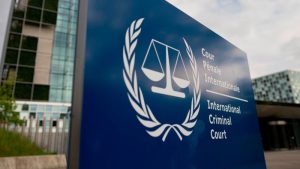Police reform has become a forgotten issue
This article is an on-site version of our Inside Politics newsletter. Subscribers can sign up here to get the newsletter delivered every weekday. If you’re not a subscriber, you can still receive the newsletter free for 30 days
Good morning. A year ago, when 100 firearms officers downed tools following the charging of a police officer with murder after the fatal shooting of Chris Kaba, I wrote two things in this newsletter. Looking at the numbers of shootings and prosecutions, it seemed to me that the UK system was producing outcomes that were about as good as could be expected. I was troubled by the fact some serving and former police officers wanted to raise the bar to prosecutions.
Given that the trial has now concluded, it seemed an appropriate time to revisit some of those arguments and to consider the wider prospects for reforming this particular public service in 2024.
Inside Politics is edited by Georgina Quach. Read the previous edition of the newsletter here. Please send gossip, thoughts and feedback to [email protected]
What needs reform
Because the UK has strict gun control laws and very few firearms in circulation, we have need of very few armed police officers, those officers rarely fire their guns, and there are very few deaths following police shootings. In England and Wales there have been 83 deaths since 1990, 35 of them in London, according to the charity Inquest. Just four have resulted in prosecutions of the officers. Only one, the fatal shooting of Jean Charles de Menezes in 2005, resulted in a successful conviction — not of an individual, but of the Metropolitan Police as a whole, which was found guilty of breaching health and safety laws. The trial over the fatal shooting of Chris Kaba by a Met police officer, only the fourth in those 34 years, has ended with a not-guilty verdict.
As I wrote last year, there will be occasions when armed officers feel they have to fire their guns, and on some occasions they will have sufficient questions to answer that it will need to not only be scrutinised by the police complaints watchdog, but also by the courts. A system that produces 48 fatal shootings in 34 years, only four of which meet the threshold to be prosecuted in court, is probably working about as well as can be reasonably expected.
That remains my view. Having read the Independence Office for Police Conduct’s annual report on deaths during or following police contact, as I do every year, most cases are open and shut.
I think it is a reasonable assumption that juries will be hesitant to convict police officers. But I don’t think that you can, looking at the actual cases involved, say that this is leading to a very low rate of prosecutions and convictions. The key factor is that very few police shootings happen in the UK, and very few require a court to be involved.
Given the small numbers of cases, I think some of the statements about the demographics are highly questionable. Inquest, one of two organisations that collects statistics about deaths following police contact in the UK, has claimed that “black men are disproportionately killed by the police” in the UK. In the year that Kaba was shot, two other people, both of them white, were shot and killed by police in Cumbria and Derbyshire respectively. In 2020, the only person shot and killed by police in England and Wales was a white man.
I don’t wish to be glib about the deaths of four people. Regardless of what they have done, a death is a tragedy. But the blunt truth is that because fatal police shootings in England and Wales are so rare, in any given year they are going to be “disproportionate” in one way or another.
Analysing them through that lens can and will lead to us missing the wood for the trees. The killing of de Menezes is a good illustration of that: de Menezes, a light-skinned Brazilian man, was shot because he was misidentified as an Ethiopian suspect. This was quite literally criminal incompetence that led to the death of an innocent man and endangered many more because it delayed the arrest of an actual terrorist. That his ethnic profile is “proportionate” within London that year is irrelevant, frankly.
There is a different pattern when it comes to deaths in traffic incidents, where ethnic minorities are consistently over-represented compared with their contribution to the crime statistics, but again we are talking about tiny numbers (162 road traffic incidents since 1990 according to Inquest).
There are many more deaths in police custody (1,195 over the same period in England and Wales) than there are deaths following shootings, but, as it stands, the ethnic make-up of those deaths is actually a touch whiter than the population as a whole.
What unites the vast majority of deaths in custody is that they are people with health conditions, usually but not exclusively involving severe mental health conditions who often have not been looked after properly. The only case in which a police officer has been convicted of manslaughter, the death of Dalian Atkinson, is in that respect typical of deaths in custody, in that Atkinson’s mental health difficulties were poorly accounted for and as a result he died.
The good news is that there has been a clear improvement in these statistics: deaths in custody have dropped significantly since 2006, both using Inquest’s figures and the IOPC (the two organisations count slightly differently). The bad news is that this improvement seems to have flattened out.
It also remains my view that I don’t think we can reasonably describe only four prosecutions across 34 years as evidence that the system is too quick to bring charges. It continues to concern me that the reaction to this court case from many serving and previous officers has been to suggest that we need a lighter-touch approach, though I think Yvette Cooper’s decision not to name armed police officers who have been charged unless and until they are convicted is the right one.
I think on the narrow issue of police shootings, the UK is getting the best outcomes you could reasonably expect. However, given the number of scandals and crises facing policing, particularly the Met, the defensiveness from the force’s leadership is worrying. That the Met and the country’s other police forces have room for improvement across many of their duties is clear to anyone who cares to look, and should also be clear to their leadership. But it isn’t and I am pessimistic that this will change.
Police reform, one of the real achievements of the previous Conservative government’s first seven years in office, has become a bit of a forgotten issue, in part because after the loss of the Tory parliamentary majority in 2017 and the resulting blow to Theresa May’s authority, the Conservative party in general went off the idea.
The IOPC, the new and improved police watchdog May set up, is not perfect, but it is much more transparent than its predecessor. The Conservative contribution to police reform started even before the party was in power: in opposition from 2005 onwards in particular, it was a regular critic of the then-commissioner. I think at least some of the reduction in the number of deaths in custody from 2006/7 onwards can and should be attributed to the greater focus on the quality of policing driven by the then-opposition.
In the present day, however, neither party seems to want to recover that focus on improving the quality of policing, rather than just increasing the number of officers hired. Given how little thanks for it May received, you can hardly blame them.
Now try this
I have just finished watching the brilliant new BBC series Ludwig, a wonderfully constructed cosy crime drama in which David Mitchell plays a puzzle solver who has to go undercover in the Cambridge police force for reasons I will let you discover yourself.
I always love this kind of fairly gentle crime story — I am also very much enjoying this season of Only Murders in the Building — but this is a particularly excellent example of the genre. It manages to work perfectly as a self-contained single series while leaving open the possibility of many more, so please do watch it so the BBC recommissions it.
It also has a lovely soundtrack that riffs off, as you would expect, the work of Beethoven.
Top stories today
Recommended newsletters for you
US Election Countdown — Money and politics in the race for the White House. Sign up here
One Must-Read — Remarkable journalism you won’t want to miss. Sign up here
#Police #reform #forgotten #issue






